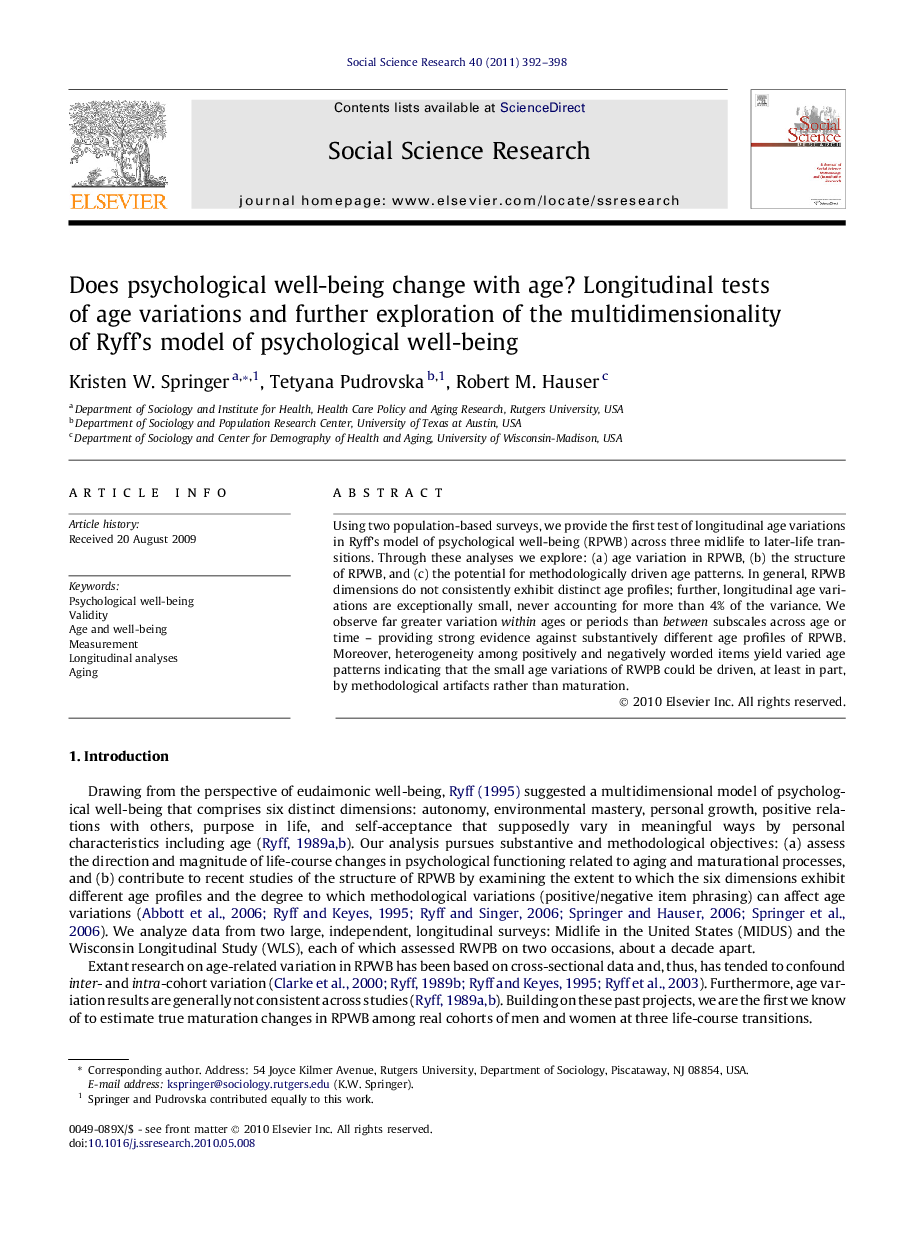| Article ID | Journal | Published Year | Pages | File Type |
|---|---|---|---|---|
| 956254 | Social Science Research | 2011 | 7 Pages |
Using two population-based surveys, we provide the first test of longitudinal age variations in Ryff’s model of psychological well-being (RPWB) across three midlife to later-life transitions. Through these analyses we explore: (a) age variation in RPWB, (b) the structure of RPWB, and (c) the potential for methodologically driven age patterns. In general, RPWB dimensions do not consistently exhibit distinct age profiles; further, longitudinal age variations are exceptionally small, never accounting for more than 4% of the variance. We observe far greater variation within ages or periods than between subscales across age or time – providing strong evidence against substantively different age profiles of RPWB. Moreover, heterogeneity among positively and negatively worded items yield varied age patterns indicating that the small age variations of RWPB could be driven, at least in part, by methodological artifacts rather than maturation.
